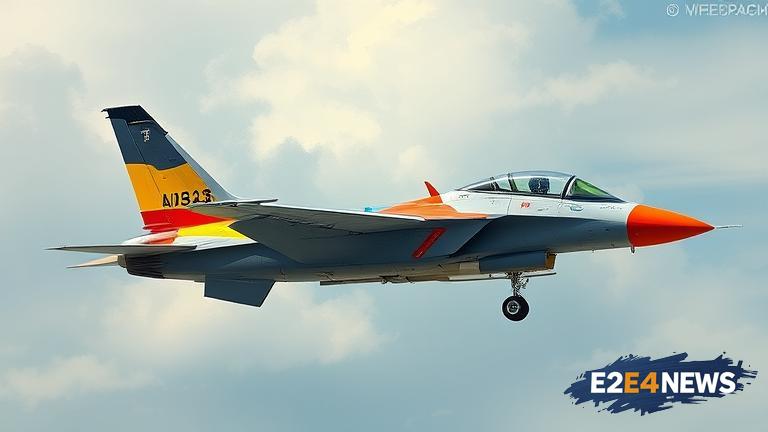In a recent statement, Chancellor Merz reaffirmed Germany’s decision not to send fighter jets to Ukraine, despite ongoing requests from the Ukrainian government. This move has sparked intense debate and discussion among European leaders and NATO allies. The Chancellor’s confirmation comes as a response to the escalating conflict between Ukraine and Russia, with Ukraine seeking increased military aid from its Western partners. Germany’s refusal to provide fighter jets is attributed to concerns over potential escalation and the risk of drawing NATO into the conflict. The German government has been cautious in its approach, emphasizing the need for a diplomatic solution to the crisis. Chancellor Merz’s statement highlights the complexities of the situation, as Germany seeks to balance its support for Ukraine with the need to avoid provoking Russia. The decision has been met with criticism from some quarters, with proponents of increased military aid arguing that Germany’s stance is insufficient. However, the Chancellor’s position is supported by other European leaders, who share concerns over the potential consequences of escalating the conflict. The situation remains fluid, with ongoing diplomatic efforts aimed at finding a peaceful resolution. In the meantime, Germany continues to provide significant humanitarian and economic aid to Ukraine, demonstrating its commitment to supporting the country. The Chancellor’s statement serves as a reminder of the delicate balance of power in the region, with European leaders navigating a complex web of alliances and interests. As the conflict continues to unfold, Germany’s decision not to send fighter jets to Ukraine will likely remain a topic of discussion and debate. The German government’s approach is shaped by its historical experience and geopolitical position, with a strong emphasis on avoiding actions that could be perceived as provocative. The situation in Ukraine has significant implications for European security, with the potential for far-reaching consequences. In this context, Chancellor Merz’s statement underscores the need for careful consideration and diplomacy in addressing the crisis. The international community continues to monitor the situation closely, with a growing recognition of the need for a comprehensive and sustainable solution. As the conflict enters its next phase, Germany’s role in shaping the European response will remain crucial. The Chancellor’s confirmation of Germany’s stance serves as a reminder of the complexities and challenges involved in addressing the crisis. With the situation continuing to evolve, it is likely that Germany’s decision will be subject to ongoing review and reassessment. The German government’s commitment to supporting Ukraine is evident, even as it maintains its cautious approach to military aid. The need for a diplomatic solution is widely recognized, with European leaders seeking to avoid further escalation. In the coming weeks and months, the international community will be watching closely as the situation in Ukraine continues to unfold. The potential for a peaceful resolution remains, although it will require careful diplomacy and a commitment to finding a sustainable solution. The German government’s stance on fighter jets is just one aspect of a broader European response to the crisis, with ongoing efforts aimed at supporting Ukraine and promoting stability in the region.
